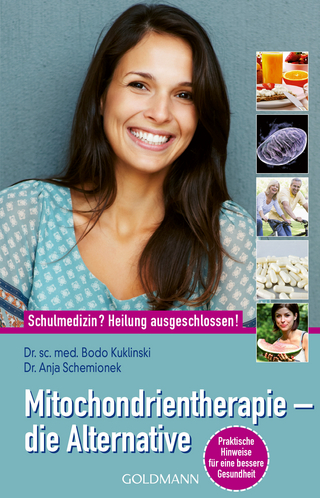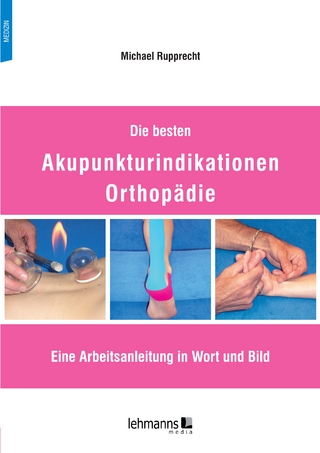
Active Phytochemicals from Chinese Herbal Medicines
CRC Press (Verlag)
978-1-138-89439-6 (ISBN)
Chinese herbal medicine represents complementary or adjunctive therapies that often can improve the efficacy of Western medicine to achieve the pharmacological effects, especially in cancer treatment. However, the combination of herbs with therapeutic drugs can raise potential health risk. Building a bridge between Western medicine and herbal medicines, Active Phytochemicals from Chinese Herbal Medicines: Anti-Cancer Activities and Mechanisms gives you useful information on how integrated medicines can work for cancer therapy. It discusses the therapeutic uses of phytochemicals, adverse effects, and interactions with (Western) cancer drugs.
The author takes a unique approach to integrated pharmacology of herbal medicines, examining the development of phytochemicals and their mechanisms of action in the context of the cancers and diseases they are used to treat. He covers biologic action of the active phytochemicals at the molecular, cellular, and organ levels. The book covers the principles of the interaction of phytochemicals and the related drug actions. It also addresses the common pathways affecting cancer development before discussing the phytochemical classes and specific phytochemicals that have been recently reported in journal papers for the management of cancer and other diseases.
Highlighting the increasingly important aspects of pharmacology, including health benefit and drawbacks of phytochemicals, the book presents the relevant background of the biochemistry of the cancer. It includes illustrations and tables with adverse reactions that highlight important issues related to phytochemical actions. These features and more make the book a useful reference on phytochemicals obtained from herbal medicines. It blends coverage of fundamental mechanisms of anti-cancer action and the use of phytochemicals to manage cancers and other human diseases, allowing you to explore how herbal medicines can enhance conventional protocols.
Dr. Wing Shing Ho, PhD, is associate professor of the biochemistry programme of School of Life Sciences at The Chinese University of Hong Kong, Hong Kong, China. He earned his BS in biochemistry (1979) from the University of Alberta and MA in chemistry (1982) and PhD in biological chemistry (1985) from the State University of New York at Buffalo. After completing a postdoctoral training in the Pediatrics Department at SUNYAB, he moved to the Department of Chemistry of the University of Utah as a postdoc investigating the methodology of isolation and purification of DNA and subsequently moved to the Center for Human Toxicology of the University of Utah as a research associate investigating the role of hepatic toxicants on liver metabolism in lab animals. In 1994, Dr. Ho was appointed lecturer in the Department of Biochemistry and, in 2005, he was appointed associate professor at The Chinese University of Hong Kong and became an instrumental part of the toxicology programme in the School of Life Sciences. Dr. Ho holds memberships in several professional associations, including the United States Society of Toxicology, the American Chemical Society, the New York Academy of Sciences, the American Institute of Chemists (fellow), and the Protein Society. He has been appointed a consultant scientist by professional groups and the local government, including Government Secretariat Home Affairs Bureau and the HK Chemical Waste Association. Dr. Ho’s work has been supported in part by the university research grants from the Hong Kong Higher Education and Innovation and Technology Commission and the Croucher foundation. He has received awards from the American Society for Biochemistry and Molecular Biology for students’ papers. Dr. Ho has authored and coauthored approximately 100 papers and proceedings in peer-reviewed international journals and hold patents on herbal medicines. He has contributed original data to Protein Data Bank (PDB) and has applied for patents under the Patent Cooperation Treaty (PCT) for anticancer agents in the United States. He lectures regularly to toxicology, college undergraduate, and graduate students. Dr. Ho continues to perform fundamental research on the cytotoxic effects of environmental and food chemicals and the development of therapeutic agents on cultured human cells and animal models.
Preface
Author
Abbreviations
Chapter 1: Introduction
Chapter 2: Overview: General Principles
Chapter 3: Combination of Cancer Drugs
Chapter 4: Plant-Derived Active Phytochemicals Show Various Biologic and Pharmacological Activities in Cancer
Chapter 5: Therapeutic Benefits of Phytochemicals
Chapter 6: Mechanism of Cancer Drug Action
Chapter 7: Inhibition of Cancer Growth by Herbal Medicines
Chapter 8: Herbal Formulations in Folk Medicine
Chapter 9: Exploration of Herbal Medicine
Appendix: List of Selected Phytochemicals
| Erscheinungsdatum | 25.07.2017 |
|---|---|
| Verlagsort | London |
| Sprache | englisch |
| Maße | 156 x 234 mm |
| Gewicht | 453 g |
| Themenwelt | Sachbuch/Ratgeber ► Gesundheit / Leben / Psychologie ► Alternative Heilverfahren |
| Medizin / Pharmazie ► Allgemeines / Lexika | |
| Medizin / Pharmazie ► Medizinische Fachgebiete ► Onkologie | |
| Medizin / Pharmazie ► Medizinische Fachgebiete ► Pharmakologie / Pharmakotherapie | |
| Medizin / Pharmazie ► Naturheilkunde ► TCM / Ayurveda | |
| Medizin / Pharmazie ► Pharmazie | |
| ISBN-10 | 1-138-89439-7 / 1138894397 |
| ISBN-13 | 978-1-138-89439-6 / 9781138894396 |
| Zustand | Neuware |
| Informationen gemäß Produktsicherheitsverordnung (GPSR) | |
| Haben Sie eine Frage zum Produkt? |
aus dem Bereich


